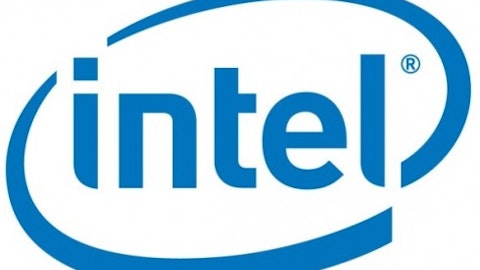After being criticized heavily for the choices it made with regards to its upcoming console, the Xbox One, Microsoft Corporation (NASDAQ:MSFT) has done a complete 180 and revised its policy.
Now, Microsoft Corporation (NASDAQ:MSFT) will no longer require Xbox One consoles to be connected to the Internet every 24 hours. Games will remain on the disc, rather than being installed and activated, and gamers are free to resell their games and lend them to their friends.
Ultimately, this could really benefit GameStop Corp. (NYSE:GME), while Sony Corporation (ADR) (NYSE:SNE)‘s PlayStation 4 could face more competition this fall.
The Xbox One backlash
After the Xbox One’s policies were laid out, gamers across the Internet were overwhelmingly united in their opposition to Microsoft Corporation (NASDAQ:MSFT)’s next console. The Windows-maker was seen as being anti-consumer, as the rights gamers once enjoyed were going to be taken away from them.
Specifically, gamers would no longer be able to resell their games, or pass them among their friends. And those gamers without reliable Internet connections would be left in the cold.
Microsoft Corporation (NASDAQ:MSFT)’s chief console rival, Sony Corporation (ADR) (NYSE:SNE), took advantage of the backlash with a short online video poking fun at the Xbox One’s restrictive policies.
Likely due to this overwhelming backlash, Microsoft Corporation (NASDAQ:MSFT) has opted to do away with all of these restrictive policies. Going forward, the Xbox One will function largely like existing consoles — games will be tied to discs, and the console can operate fine without an Internet connection.
Did Microsoft save GameStop?
In one fell swoop, Microsoft may have just saved GameStop Corp. (NYSE:GME)’s business — or at least, bought it a few more years. Shares of the video game retailer jumped over 7% in after-hours trading Wednesday, and for good reason.
Although the Xbox One had allowed for used game sales prior to Microsoft’s reversal, as I’ve written previously, the process was poised to be difficult and confusing. What’s more, Microsoft’s digital direction didn’t seem to jive with GameStop’s continued reliance on disc-based game sales.
With Microsoft taking a step back from a fully digital future, GameStop’s core business (selling used, disc-based games) should continue to be viable for quite some time. Although I still believe there are some significant, long-term challenges to GameStop (the rise of alternative, fully digital gaming mediums like smartphones, tablets, cloud-based gaming and the Steam Box) the company isn’t likely to fall apart in the near future.
Sony’s PlayStation 4 isn’t a guaranteed winner
Given the backlash Microsoft was seeing, Sony looked to have a guaranteed winner with the PlayStation 4. Until Wednesday, the PlayStation 4 had a major advantage in that it lacked the Xbox One’s restrictive policies.
But Microsoft has clearly neutralized that edge. And with that in mind, the Xbox One looks to be a superior gaming console. Although it’s still $100 more expensive, the Xbox One offers far better entertainment features, and its initial lineup of games looks to be more promising.
Given that the gaming community’s rage was focused on Microsoft, Sony’s decision to begin charging for online play largely flew under the radar. But with Microsoft backing down, Sony could soon see some consumer backlash of its own.
Microsoft crumbles under pressure
Ultimately, Microsoft’s decision to advance such an apparently anti-consumer policy, and then backtrack on it so quickly, might be seen as sign of weak management. But it should smooth things over with the gaming community, and could lead to a more robust adoption of the Xbox One.






